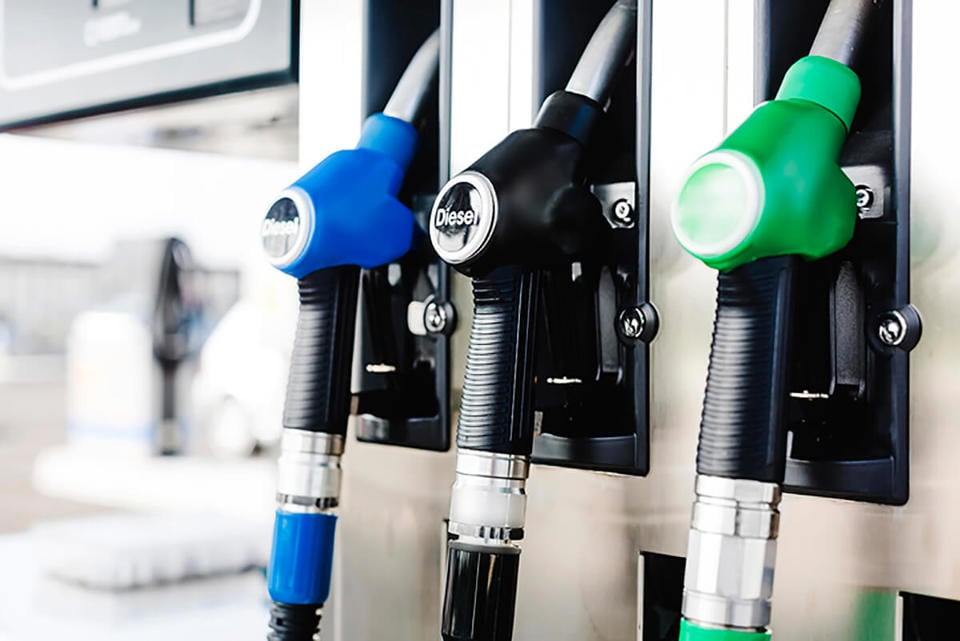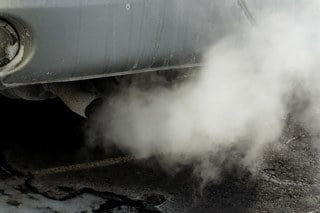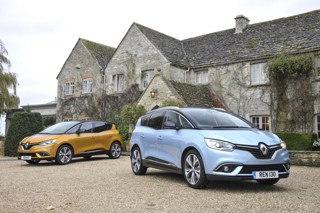An anti-diesel agenda has resulted in new car CO2 emissions rising for the first time in 14 years as people make the switch to petrol, research suggests.
Department for Transport figures studied by online car retailer Buyacar.co.uk, show that the average new car sold in 2017 produces more CO2 than one sold in 2016, reversing a continuous decline in emissions of the greenhouse gas since the figures were first published by the Government in 2003.
It has attributed the rise to the slump in sales of diesel cars which are generally more efficient, and produce less CO2, than an equivalent petrol model. After recent tax rises, the threat of widespread inner city charges for older diesel cars and new findings about the harmful effects of fumes, diesel sales have declined by 16% so far this year.
Official Government statistics for the first 10 months of 2017 show that the average new car produces 121.1g of CO2 per kilometre. The full annual figure is on course to exceed the 120.3g/km recorded last year. It ends a 14-year trend of falling CO2 emissions, which have declined by 4.02g/km annually since 2003.
The information is based on data on new car registrations, collected by the Driver and Vehicle Licensing Agency (DVLA).
“Many customers now tell us that they’re avoiding diesel even if it means spending more on fuel,” said Austin Collins, managing director of BuyaCar.co.uk.
“Although switching to petrol makes good financial sense for some - especially with plenty of economical petrol, hybrid or electric cars available - diesel’s fuel economy still makes it a good option for long-distance drivers or SUV buyers at the moment.”
Car manufacturers are under pressure to meet an EU target of cutting average car CO2 emissions across the industry to 95g/km by 2021, but the recent backlash against diesel has damaged their strategy of meeting the target by selling more efficient diesel cars.
Although sales of new electric and hybrid cars have increased by 35% this year, this only represents an extra 28,611 cars compared with 2016. The number of new diesel cars sold has fallen by more than 190,000.
“If industry is to meet challenging CO2 targets getting more of the latest low emission diesels onto our roads is crucial, as they can emit 20% less CO2 than the equivalent petrol models,” said Tamzen Isacsson, director of the Society of Motor Manufacturers and Traders, the industry body.
Isacsson blamed “confusion around government air quality plans and taxation” for the drop in diesel sales, and warned: “If new diesel car registrations continue on this negative trend, UK average new car CO2 levels could indeed rise this year.”
A Department for Transport spokesman said: “We will seek to maintain ambitious targets and our leadership position, and intervening firmly if not enough progress is being made.
“Our ambitious Clean Growth Strategy includes investing nearly £1.5 billion in accelerating the rollout of ultra-low emission vehicles by 2020 – generating business opportunities and leading to cleaner air and lower greenhouse gas emissions.”
The International Council on Clean Transportation (ICCT), a research group that has led the campaign against harmful diesel emissions, said that advanced petrol engines, as well as electric and hybrid technology could cut CO2 emissions without the need for diesel.
“Quite a lot of petrol vehicles do not use the latest technologies available and still have higher CO2 emissions than comparable diesel cars,” said Peter Mock, managing director of ICCT Europe. “However, the - unfortunately often repeated - statement that diesel cars are necessary to decrease CO2 emissions is simply wrong. Instead, hybridising petrol vehicles and transitioning to electric vehicles today makes more sense for vehicle manufacturers.”
Monk also said that the increasing popularity of tall and heavy sport utility vehicles (SUVs), which are generally less fuel efficient than hatchbacks, had made a significant contribution to the rise in average CO2 emissions.
























KD_Boss - 22/12/2017 10:30
I predicted this some months ago, and this will also apply to the EU. In my view the Government have been badly advised and have ignored information. By end of next year (2018) the emission levels from petrol vehicles will be a lot worse and no where to go? The problem with diesel emissions relate to old vehicles; mainly taxis, buses etc and not new Euro6 diesel engines where NOx is nearly nil.